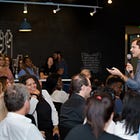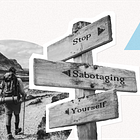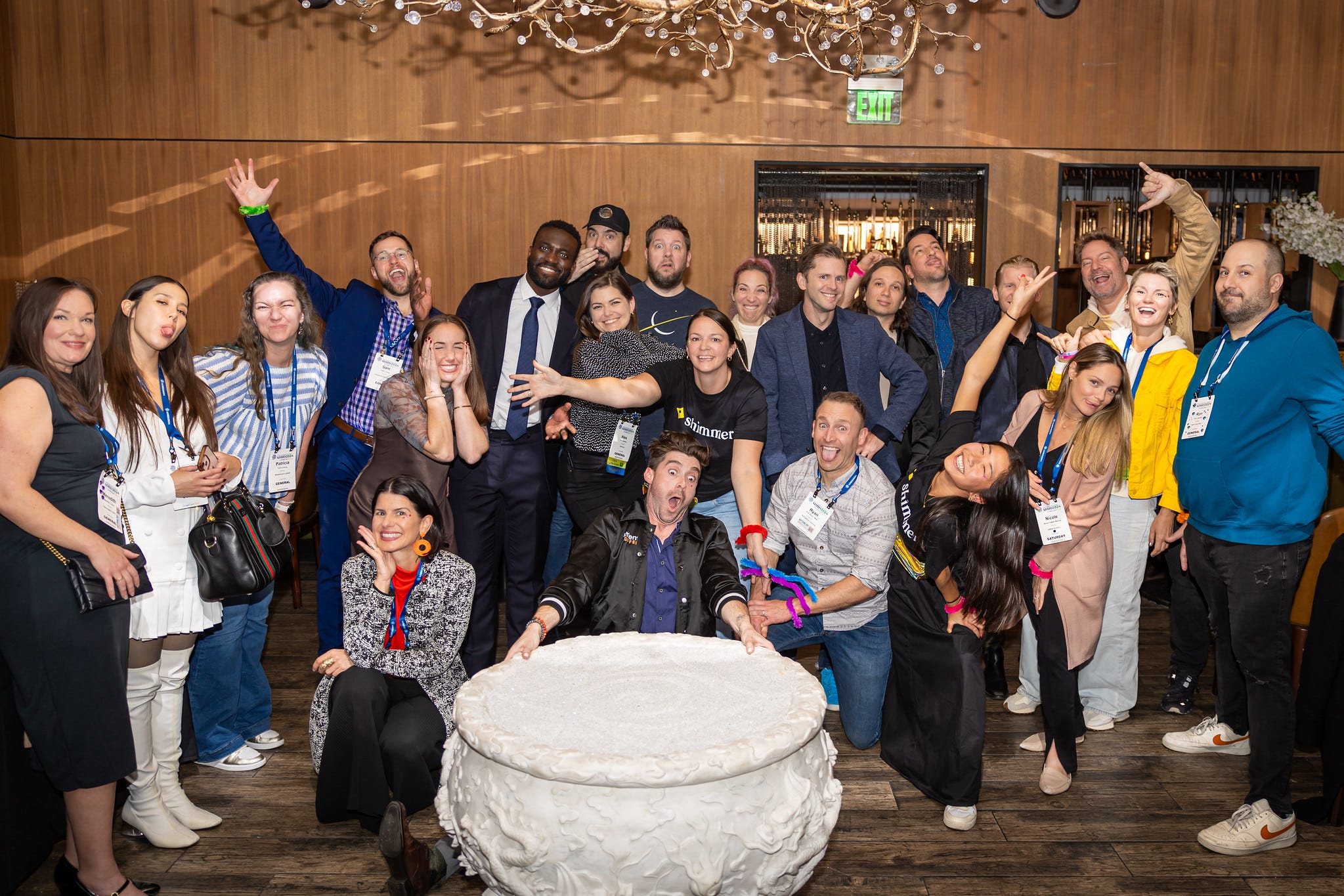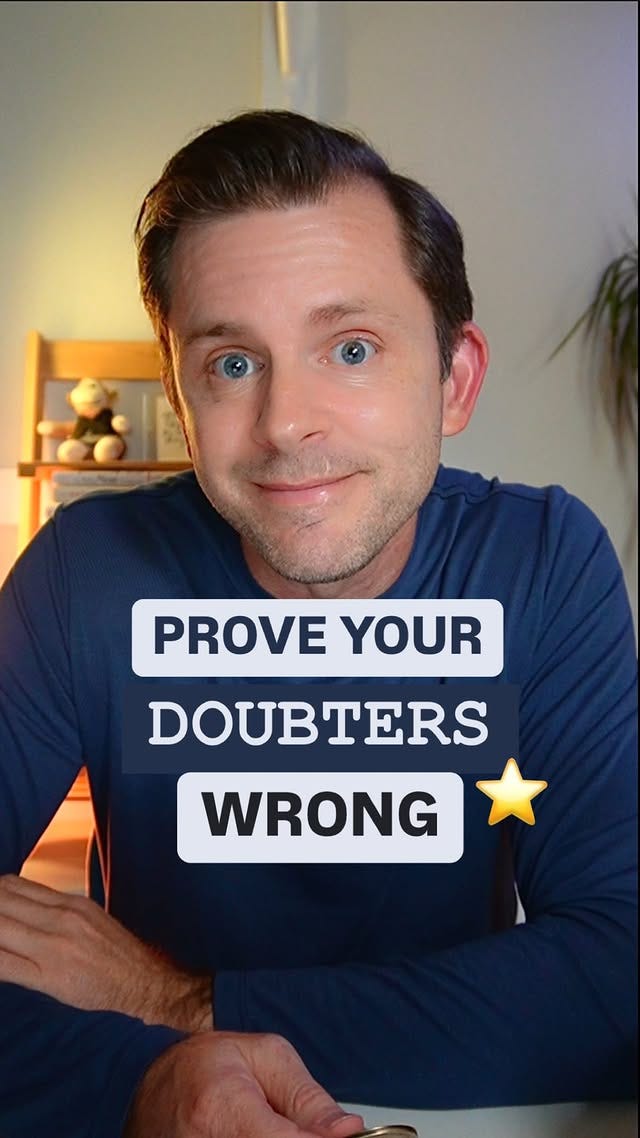Welcome to a new year! Okay, it’s January 7th, but that’s when the year really starts, right? The 2025 format of this newsletter will be weekly, with new editions every Tuesday morning. (Expect longer, more in-depth posts most weeks. There will also be some bonuses and additional posts throughout the year, but not published on a strict schedule.) To start, let’s recap a few things … Last year when I began this project, I wanted to open up about some parts of my life and work that I hadn’t shared before, and hopefully in a way that could be useful to readers. I shared about the origin of the problem, my adult re-diagnosis of ADHD, and learning about neurodivergence in general. Short version: I had panic attacks, I was super depressed, and all this happened while lots of other good things were happening. Both things were true. My life was often great, yet I still felt highly anxious and sad. Because of this duality, I felt a bit like an imposter at times. It’s not like the good things were inauthentic or false—they were just as true as the hard things. Still, it sometimes felt weird. These posts provide some introduction: Finding a Path ForwardI eventually came to understand that a big part of “feeling better” lies simply with self-awareness. If I accepted that a certain amount of anxiety, restlessness, and distraction will always be part of my life, I could stop feeling as troubled about it. I could also learn to leverage it, whether in the form of “ADHD superpowers” as some people call it, or just learning to recognize the positives of my experience. I don’t think I’d be who I am without all of me! And that’s a big realization. But acceptance isn’t the only answer—we can also find solutions to specific problems. Time blindness is a classic example. Many people with ADHD struggle to accurately perceive the passage of time or estimate how long tasks will take. This isn't a character flaw—it's a genuine neurological difference in how we process temporal information. While we can't fundamentally change how our brains perceive time, we can implement practical solutions: using timers, building in buffer time, and creating external systems to track deadlines. Working memory presents another challenge that benefits from both acceptance and action. When you frequently forget items from your short-term memory—everything from why you walked into a room to that brilliant idea you had five minutes ago—it's easy to become frustrated with yourself. Understanding that this is a common neurodivergent trait helps reduce that self-criticism. At the same time, you can develop systems to support your working memory. I go back and forth on “Problems vs. Solutions.” When it comes to writing, I think it’s important for public writing to be as helpful as possible to readers. This isn’t a diary or journal; everything I share with the world is meant to be useful in some way. But it’s not just about writing: I also mean I go back and forth in my own mind! Sometimes I want to improve, and other times I want to accept. In the end, both experiences point to the basic fact of being human.Everyone experiences hardship to some degree (life is sometimes difficult, after all), but people who are neurodivergent can experience highs and lows more acutely. The theme of this newsletter is not everything can be fixed, but there are things you can do to feel better. In other words, let’s be comfortable with how things are, while trying to improve what we can. And you can also be comfortable with dissonance! I’ve been feeling it a lot lately, including when I went away for a week to plan out my 2025. That’s the mission for this year, broadly speaking. We’ll build it out more in future posts, along with interactive exercises and a few surprises. (Also, here are some of my personal goals, in case you missed the Annual Review recap during the holidays. The theme of my year is 51% Integration.) One last thing as we kick off a new year: you are awesome! Thanks for reading these posts, hitting the heart button on the posts (it really does help!), and simply for being out there. Your comments and messages over the past year have made this whole project worthwhile. I'm truly excited about what lies ahead for us this year. See you next week! Some Things for Paid SubscribersI usually end up writing 95% of the content of this newsletter for everyone. It just feels right, and I don’t love putting up paywalls. But I also want to thank and acknowledge those who support the project, because that’s ultimately what allows it to be free to everyone else! Paid subscribers also get access to audio recordings and my private course on DOING THINGS. If you haven’t upgraded yet, you can do so here: I provide scholarships to anyone who wants access to the upgraded materials but can’t afford the subscription. (If that’s you, send a short note with “Scholarship” in the subject line to team@chrisguillebeau.com.) Short Video of the WeekLast year I started making more Reels and other short-form videos. It’s been a fun process and I’ll be continuing it this year. Here’s a new one for you, featuring a personal story of how I used a negative comment as motivation to try harder: Some New Year’s-y Things
You’re currently a free subscriber to 🌻 A Year of Mental Health. For the full experience, consider upgrading! |
The Comfort of Dissonance and Possibility
By -
January 07, 2025
0











Post a Comment
0Comments